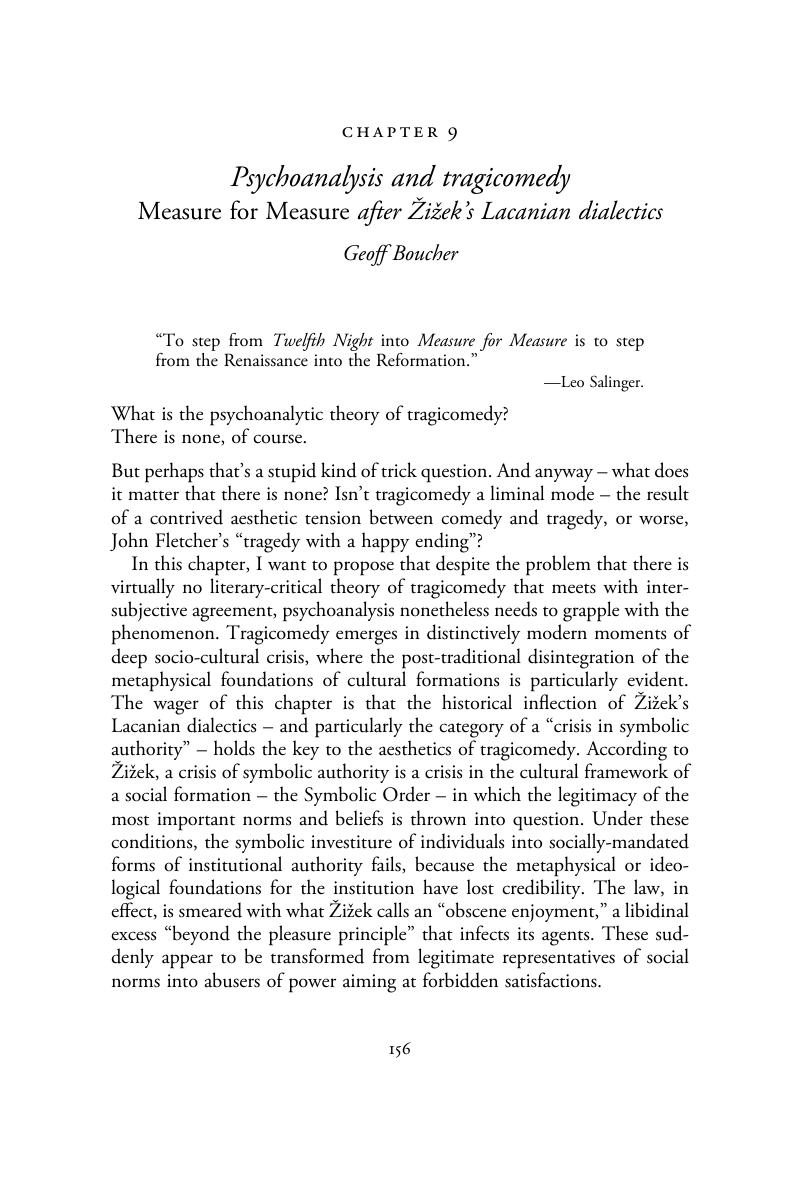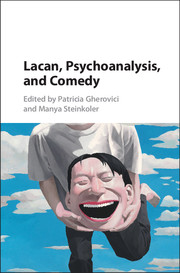Book contents
- Lacan, Psychoanalysis, and Comedy
- Lacan, Psychoanalysis, and Comedy
- Copyright page
- Contents
- Introduction
- Part I The laughing cure
- Part II Comedy on the couch
- Chapter 8 Comedy and the agency of the letter in A Midsummer Night’s Dream
- Chapter 9 Psychoanalysis and tragicomedy
- Chapter 10 Jane Austen’s wit-craft
- Chapter 11 The perambulatory process
- Chapter 12 Power in the closet (and its coming out)
- Part III He who laughs last, laughs last
- Index
- References
Chapter 9 - Psychoanalysis and tragicomedy
Measure for Measure after Žižek’s Lacanian dialectics
from Part II - Comedy on the couch
Published online by Cambridge University Press: 05 August 2016
- Lacan, Psychoanalysis, and Comedy
- Lacan, Psychoanalysis, and Comedy
- Copyright page
- Contents
- Introduction
- Part I The laughing cure
- Part II Comedy on the couch
- Chapter 8 Comedy and the agency of the letter in A Midsummer Night’s Dream
- Chapter 9 Psychoanalysis and tragicomedy
- Chapter 10 Jane Austen’s wit-craft
- Chapter 11 The perambulatory process
- Chapter 12 Power in the closet (and its coming out)
- Part III He who laughs last, laughs last
- Index
- References
Summary

- Type
- Chapter
- Information
- Lacan, Psychoanalysis, and Comedy , pp. 156 - 183Publisher: Cambridge University PressPrint publication year: 2016
References
Works Cited
- 2
- Cited by



